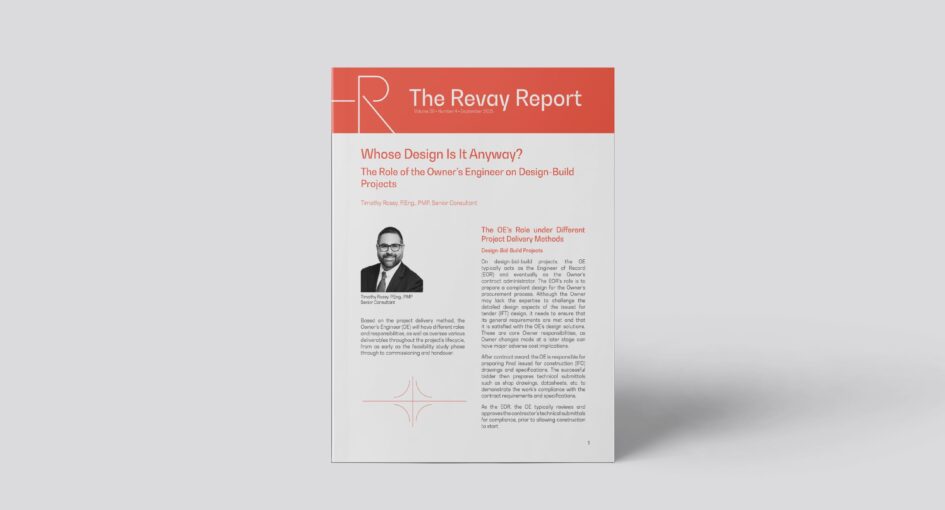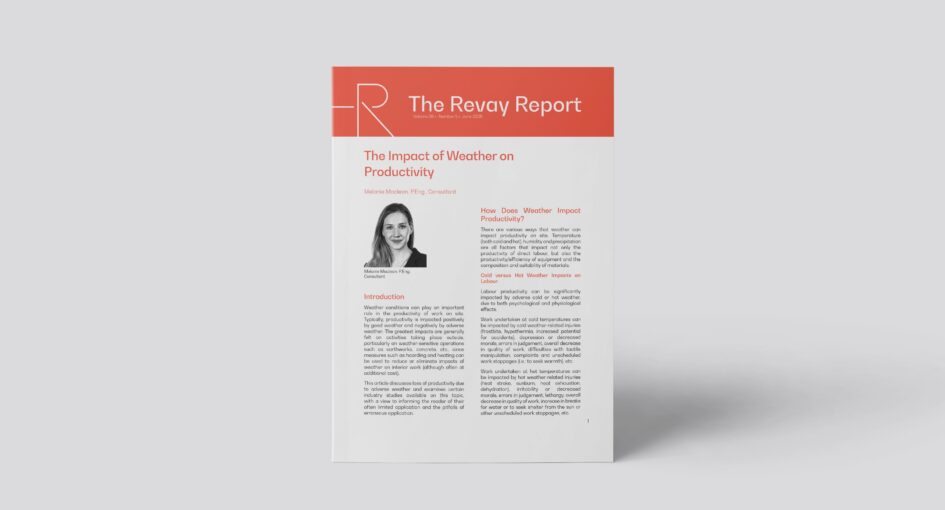Schedules, Cost Estimates and Dispute Resolution Post COVID-19

It has now been more than two months since COVID-19 was declared a global pandemic. Since then, our country, along with the rest of the world, has been forced to make changes to the way we operate both in business and in our personal lives.
The Canadian construction industry has felt the impacts of these changes, although the degree of disruption on construction projects has varied by province, given that some areas have shut down, where others have continued under modified work conditions. However, we can all agree that like other businesses, the business of construction will forever be different because of COVID-19. The landscape of the construction industry will continue to change as the COVID-19 situation evolves and as work resumes / ramps up again. With that in mind, construction projects may need to be built differently, both in the short term and the long term, which will require us to:
- Build new reference points for schedules and cost estimates, and
- Avoid and resolve disputes while managing interpersonal relationships and interactions remotely
Schedules and Cost Estimates
Just as construction contracts may need to be modified to address new risks, project scopes of work, schedules and cost estimating practices will also need to be adapted to follow suit.
Whether the same construction activities will take more time due to increased health and safety requirements, or construction methods will change completely, the historical data we have always relied upon to develop construction schedules and cost estimates may no longer be applicable.
In order to determine the level of effort it will now take to complete individual construction activities, and projects as a whole, data collection to measure and quantify new production and productivity rates will be required. For existing projects, this also means that it is important to know how the project was performing, in terms of schedule and cost, before COVID-19 impacts began.
With proper data, collected both before and after the implementation of new construction procedures and work methods, revised production rates, productivity rates, and activity durations can be calculated to develop new metrics for scheduling and cost estimating.
As for future projects, we will not only need to consider the schedule and cost effects of typical construction activities, but also new activities and costs, such as:
- Upgrading Information Technology (“IT”) infrastructure to facilitate more remote meetings and information sharing, along with other remote functions such as testing, monitoring or inspecting; and
- The use of other technologies to reduce the need for close human interaction, such as robots, and drones.
Avoidance and Resolution of Disputes
Construction projects have long relied on interpersonal relationships between project leaders to move projects forward, manage site work, motivate teams, avoid and resolve disputes. Since the COVID-19 pandemic, the construction industry has seen successes achieved with remote work, and less face-to-face work may become normal going forward. If this were to be the case, it is important to be aware that teams will need to be effectively led without physically being together, in order to:
- Build trust: negotiate contracts, kick off projects, and build teams.
- Motivate teams: ongoing coordination, people management, and driving the work getting done.
- Address technical issues: collaboration between stakeholders to address and resolve design and constructability issues.
- Avoid and resolve disputes: negotiate change orders and claims, resolve conflicts.
Since COVID-19 impacts began, we have seen construction communities across Canada work together and share information in order to expedite the development and roll-out of new procedures and work methods on site. The quickest path to acquiring updated, reliable data for use in scheduling and estimating costs for new construction projects will be to continue this collaboration and information sharing.
We will all need to consider that construction will forever be different, including the way that we interact to resolve disputes and issues. As owners, contractors, designers, and all other parties in the construction industry are being affected by COVID-19 impacts, we believe that the best course of action will be for all parties to work together in building our new reality as we continue to navigate through these uncharted territories.
Zey Emir, P.Eng., MBA
President

